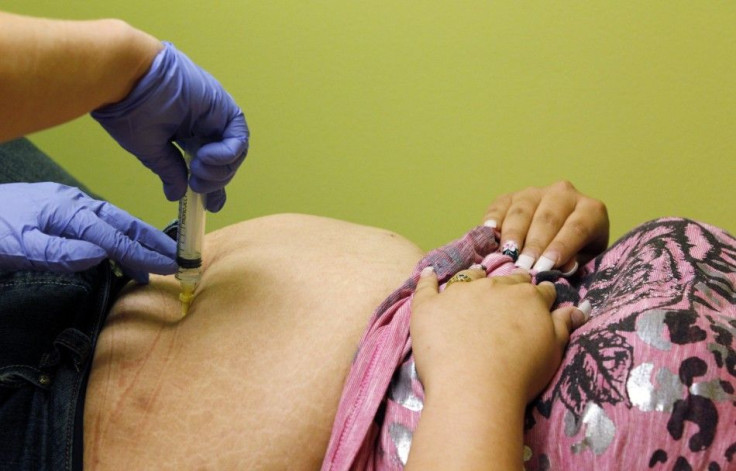Fewer Heart Attacks Occur After Weight-Loss Surgery

(Reuters) - Obese people who had weight-loss surgery were less likely to later suffer a heart attack or stroke, or to die from one, compared to people who did not have the surgery, according to a Swedish study.
The findings, published in the Journal of the American Medical Association, come from a study of more than 4,000 obese people treated at 500 surgery departments and health care centers in Sweden.
Between 1987 and 2001, half of those people opted for bariatric or weight-loss surgeries, most often stomach stapling, and the other half were treated with routine care, including advice on lifestyle changes.
Compared with usual care, bariatric surgery was associated with reduced number of cardiovascular deaths and lower incidence of cardiovascular events in obese adults, wrote lead researcher Lars Sjostrom at the University of Gothenburg.
The patients were followed for more than a decade, on average, to see how many of them suffered a heart attack or stroke.
In total, 199 who underwent bariatric surgery had their first heart attack or stroke, and 28 died as a result. By comparison, 234 people who decided against the surgery suffered a heart attack or stroke, and 49 died.
This is very beneficial in filling that gap -- we just have so little long-term data, said Ted Adams, a researcher who has studied bariatric surgery and health outcomes at the University of Utah School of Medicine in Salt Lake City.
Adams, who wasn't involved in the study, added that the results will help inform doctors and patients about the surgery's long-term consequences.
The study doesn't prove that weight-loss surgery cuts the risk of heart disease, and some experts say there are still many questions about its benefits and risks.
When the researchers took into account the initial health differences between people who did and did not get surgery, they found that after the surgery, patients were about 30 percent less likely to have a first-time heart attack or stroke than non-surgery patients, and half as likely to die from one.
Study participants who had weight-loss surgery started out with an average body mass index (BMI) of about 42. They lost an average of 16 percent of their starting weight over the 15 years after the procedure.
By contrast, the comparison group, which started out a bit lighter, didn't consistently lose or gain weight over time.
About 13 percent of the surgery group had complications after the operation and how much weight patients lost in either group wasn't tied to their chances of having a heart attack or stroke, Sjostrom and his colleagues wrote.
One reason is that the surgery has other health benefits independent of the amount of weight loss, including a reduction in diabetes, which could ease heart risks -- all things to consider when deciding whether to have surgery, Adams said.
Other doctors said that given the uncertainty that still exists about the procedures, the fact that the heart benefits are small and that some patients regain weight, those without other health risks might want to carefully weigh having the surgery done.
We don't really know the full spectrum of long-term benefits and risks for these operations, said Edward Livingston, a professor at the University of Texas Southwestern Medical Center in Dallas who wrote a commentary published with the study.
SOURCE: bit.ly/zl1o4p
(Editing by Elaine Lies and Idayu Suparto)
© Copyright Thomson Reuters 2024. All rights reserved.












